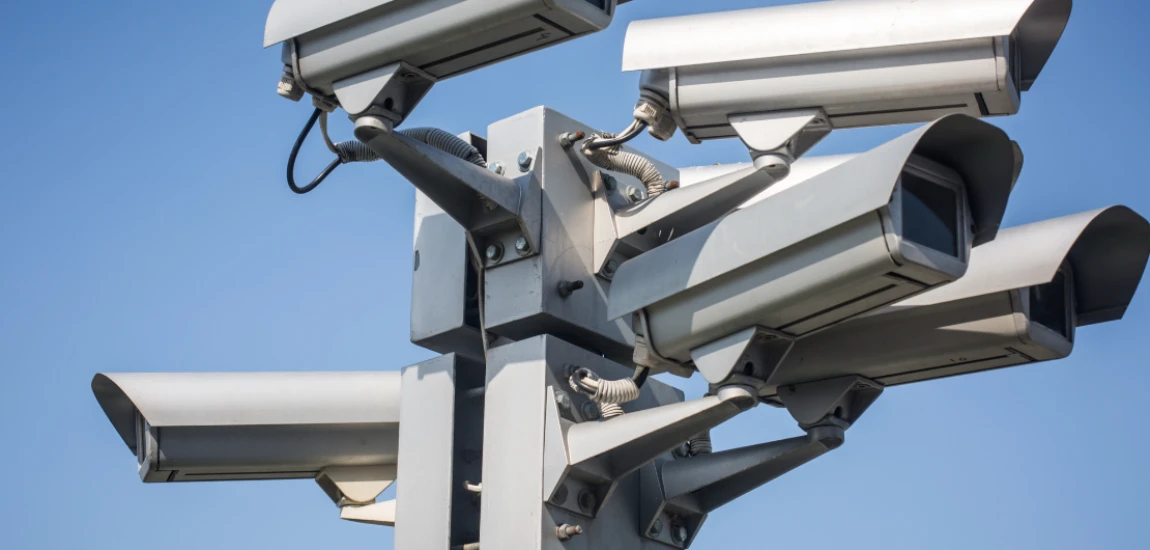Surveillance Capitalism: Are You the Product?

Every time you scroll through social media, search on Google, or shop online, you leave behind digital traces—clicks, likes, location data, browsing habits, and even your pauses on certain videos. While this may seem harmless, these traces are far from forgotten. Instead, they’re collected, analyzed, and sold in what’s now known as surveillance capitalism—an economic system where your personal data becomes the primary commodity.
Coined by Harvard professor Shoshana Zuboff, “surveillance capitalism” describes how companies profit not just from your attention but from predicting and even shaping your behavior. Think of targeted ads that seem to know exactly what you want, or the eerie way a product you casually mentioned suddenly appears on every platform. That’s not coincidence—it’s surveillance capitalism at work.
The unsettling truth is this: in the digital economy, you are not the customer—you are the product. Companies provide free services like social media, email, or navigation apps, but in exchange, they collect a staggering amount of personal data, often without explicit consent. This data is then used to drive advertising revenue, manipulate consumer choices, and influence behavior on a massive scale.
This blog explores how surveillance capitalism works, the industries it affects, the risks it poses to privacy and democracy, and most importantly—what you can do to protect yourself in a world where your personal information has become a form of currency.
What Is Surveillance Capitalism and How Does It Work?
At its core, surveillance capitalism is about turning personal data into profit. Companies like Google, Meta (Facebook), Amazon, and TikTok collect vast amounts of information about users through apps, devices, and platforms. This data includes not just what you search for or buy, but also where you go, how long you stay online, and even biometric details like voice patterns or facial recognition.
The process works in three key steps:
Data Collection – Every click, scroll, and interaction generates information. Smartphones, smart TVs, wearable devices, and even connected cars continuously harvest data.
Data Analysis – Using advanced algorithms and artificial intelligence, companies analyze patterns in your behavior to predict future actions.
Data Monetization – These insights are sold to advertisers, marketers, and even political groups, who pay to influence your decisions.
For example, when you search for “running shoes,” Google not only shows you relevant ads but also stores that query, links it with your location and past browsing history, and builds a profile of your interests. Over time, this allows companies to predict what you might want next—even before you know it yourself.
This predictive power goes beyond shopping. Surveillance capitalism fuels the recommendation engines on Netflix, YouTube, and Spotify, nudging you toward content that maximizes engagement. On social media, algorithms curate feeds designed to keep you scrolling, because the longer you stay, the more data you generate—and the more ads you see.
In short, surveillance capitalism is not just about collecting data; it’s about creating a system where human behavior itself is tracked, analyzed, and commodified.

Everyday Examples of Surveillance Capitalism in Action
You may not realize it, but surveillance capitalism shapes countless aspects of daily life:
Social Media – Platforms like Facebook, Instagram, and TikTok track likes, shares, and even how long you hover over a post. This data powers targeted advertising worth billions of dollars annually.
Search Engines – Google’s business model relies heavily on ads targeted through user behavior. While search feels free, it’s funded by the data you provide.
E-Commerce – Amazon tracks purchases, browsing history, and even abandoned carts. It uses this data to recommend products, adjust prices, and influence buying habits.
Smart Devices – From Alexa to smart thermostats, IoT devices gather detailed information about your habits at home. Even your TV can monitor what you watch and when.
Location Tracking – Apps like Google Maps and ride-sharing platforms constantly record your movements, creating a detailed map of your life.
These examples highlight how surveillance capitalism isn’t limited to one sector—it’s embedded in almost every digital service. The cost of convenience is your privacy.

Why Surveillance Capitalism Is a Problem
While personalized ads and recommendations can feel helpful, the hidden costs of surveillance capitalism are significant. Here are some of the biggest concerns:
Loss of Privacy
Your data reveals intimate details about your life—your health, political views, financial status, and relationships. When companies own this data, your sense of personal privacy erodes.
Manipulation of Behavior
Surveillance capitalism doesn’t just predict behavior—it shapes it. Targeted ads can nudge consumers into making purchases they might not have otherwise considered. Even more troubling, political campaigns use data-driven ads to sway voter opinions, raising questions about democracy itself.
Data Security Risks
The more data collected, the greater the risk of breaches. High-profile leaks from companies like Equifax and Facebook show how vulnerable personal information can be.
Power Imbalance
A few tech giants dominate surveillance capitalism, creating monopolies of data power. This centralization limits competition and concentrates influence in the hands of a few corporations.
Mental Health Concerns
Platforms driven by engagement algorithms often prioritize sensational or divisive content. This can fuel anxiety, polarization, and addiction-like behaviors.
In essence, surveillance capitalism shifts control from individuals to corporations. You no longer own your data—it owns you.

How to Protect Yourself from Surveillance Capitalism
Completely escaping surveillance capitalism is nearly impossible in today’s digital world. However, you can take steps to minimize your exposure and regain some control:
Audit Your Privacy Settings
Regularly review and update privacy settings on social media, apps, and devices. Limit permissions like location tracking, microphone access, or contact sharing.
Use Privacy-Focused Tools
Switch to search engines like DuckDuckGo, browsers like Brave, or messaging apps like Signal that prioritize privacy. Consider installing ad-blockers or VPNs for added protection.
Be Mindful of Free Services
If something is free, your data is likely the price. Before signing up for “free” platforms, ask yourself what data you may be giving away.
Limit Smart Device Usage
Think carefully before buying IoT devices like smart speakers or cameras. If you do use them, disable features that track unnecessary data.
Stay Informed
Awareness is a powerful defense. Stay updated on digital privacy news and advocate for stronger data protection laws.
These steps won’t eliminate surveillance capitalism, but they can reduce its impact on your life.

The Future of Surveillance Capitalism: Regulation and Resistance
As surveillance capitalism becomes more widespread, governments and citizens are beginning to push back. The European Union’s General Data Protection Regulation (GDPR) and California’s Consumer Privacy Act (CCPA) are early attempts to regulate how companies collect and use data. These laws give users more rights over their personal information and hold corporations accountable.
There’s also a growing movement toward data ownership. Some propose that individuals should be compensated when companies profit from their personal data, flipping the script on surveillance capitalism. At the same time, ethical technology companies are emerging, promoting business models that don’t rely on invasive data practices.
Still, regulation struggles to keep pace with innovation. Artificial intelligence, biometric data, and emerging technologies like augmented reality all create new opportunities for surveillance. Without global coordination, loopholes remain that companies can exploit.
The question for the future is not whether surveillance capitalism will continue—it will. The real question is: will society allow corporations to control personal data unchecked, or will people reclaim ownership of their digital lives?





